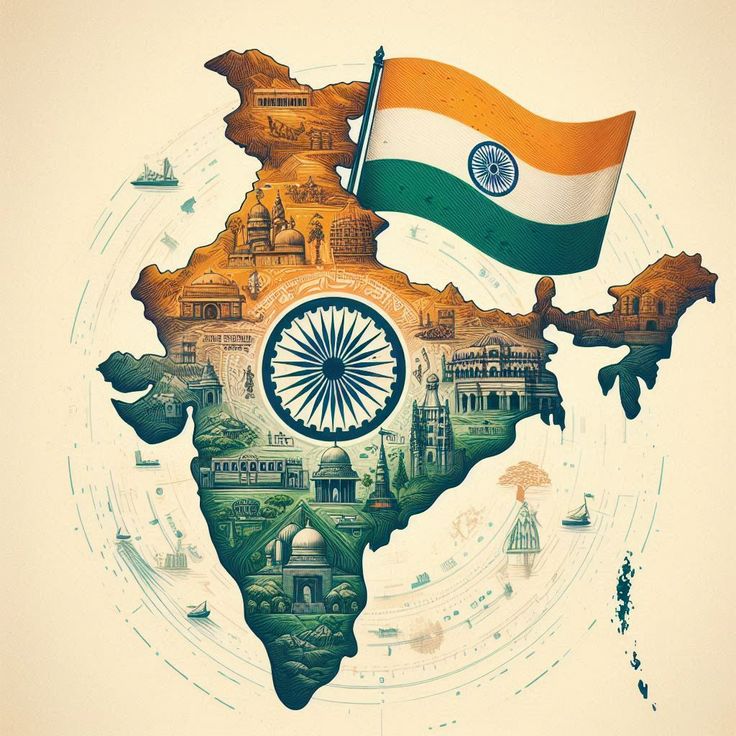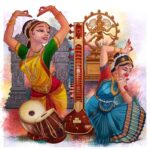Indian Leaders: Biography, Daily Life, Impact, History, and Significance
Indian Leaders: India has a long and rich history of leadership, with many figures who have not only shaped the country’s destiny but also made significant contributions to the world. Indian leaders, whether in politics, social movements, or other spheres of influence, have had a lasting impact on society and the global community. This article explores the biographies, daily lives, impacts, and historical significance of Indian leaders, providing insight into their roles in shaping modern India.
History of Indian Leaders
The story of Indian leadership stretches back to ancient times, from the rise of monarchs like Chandragupta Maurya and Ashoka to the influence of social reformers such as Swami Vivekananda and Dr. B.R. Ambedkar. The history of India’s freedom struggle saw the rise of figures like Mahatma Gandhi, Jawaharlal Nehru, and Subhas Chandra Bose, who played crucial roles in securing India’s independence from British rule. These leaders laid the foundation for a free, democratic, and diverse nation.
In modern times, Indian leaders have been instrumental in shaping the country’s development across various sectors. Politicians like Indira Gandhi and Atal Bihari Vajpayee, business magnates like Ratan Tata, and social activists like Anna Hazare have influenced India’s policies, economy, and social fabric.
Here’s a list of notable Indian leaders who have made significant contributions to India’s political, social, and economic landscape:
Freedom Fighters and Founding Leaders
- Mahatma Gandhi
- Role: Leader of the Indian independence movement.
- Achievements: Advocated non-violent civil disobedience and led India to independence in 1947.
- Jawaharlal Nehru
- Role: First Prime Minister of India (1947–1964).
- Achievements: Played a key role in shaping modern India and establishing democratic institutions.
- Sardar Vallabhbhai Patel
- Role: First Deputy Prime Minister of India.
- Achievements: Unified over 500 princely states into the Indian Union, earning the title “Iron Man of India.”
- Bhagat Singh
- Role: Revolutionary freedom fighter.
- Achievements: Symbolized the spirit of youth and sacrifice in India’s struggle for independence.
- Subhas Chandra Bose
- Role: Leader of the Indian National Army (INA).
- Achievements: Advocated armed struggle against British rule with the slogan “Give me blood, and I shall give you freedom.”
Prime Ministers of India
- Indira Gandhi
- Role: Prime Minister (1966–1977, 1980–1984).
- Achievements: First female Prime Minister of India; led during the 1971 war, resulting in the creation of Bangladesh.
- Atal Bihari Vajpayee
- Role: Prime Minister (1996, 1998–2004).
- Achievements: Known for economic reforms, nuclear tests (Pokhran-II), and improving India’s global standing.
- Manmohan Singh
- Role: Prime Minister (2004–2014).
- Achievements: Architect of India’s economic liberalization in 1991; served as PM for two terms.
- Narendra Modi
- Role: Prime Minister (2014–present).
- Achievements: Introduced initiatives like GST, Demonetization, and Make in India; focused on digital transformation and infrastructure development.
Social Reformers
- B.R. Ambedkar
- Role: Architect of the Indian Constitution.
- Achievements: Championed social justice and fought against caste discrimination.
- Swami Vivekananda
- Role: Spiritual leader and philosopher.
- Achievements: Introduced Indian philosophies of Vedanta and Yoga to the Western world.
- Raja Ram Mohan Roy
- Role: Social reformer.
- Achievements: Advocated for women’s rights, education, and the abolition of Sati.
- Sarojini Naidu
- Role: Poet and freedom fighter.
- Achievements: First woman to become the President of the Indian National Congress and Governor of a state.
Scientists and Innovators
- A.P.J. Abdul Kalam
- Role: Scientist and 11th President of India (2002–2007).
- Achievements: Known as the “Missile Man of India” for his contributions to India’s space and defense programs.
- C.V. Raman
- Role: Physicist.
- Achievements: Awarded the Nobel Prize in Physics (1930) for the discovery of the Raman Effect.
- Homi J. Bhabha
- Role: Nuclear physicist.
- Achievements: Founder of India’s nuclear program and the Tata Institute of Fundamental Research.
- Vikram Sarabhai
- Role: Father of India’s space program.
- Achievements: Founded ISRO and laid the foundation for India’s space research.
Business Leaders
- Dhirubhai Ambani
- Role: Founder of Reliance Industries.
- Achievements: Built Reliance into one of India’s largest conglomerates.
- Ratan Tata
- Role: Former Chairman of Tata Group.
- Achievements: Expanded Tata Group globally and led acquisitions like Jaguar Land Rover.
- Kiran Mazumdar-Shaw
- Role: Founder of Biocon.
- Achievements: Pioneered India’s biotechnology industry.
Cultural Icons
- Rabindranath Tagore
- Role: Poet, writer, and philosopher.
- Achievements: First non-European to win the Nobel Prize in Literature (1913); composed India’s national anthem.
- Lata Mangeshkar
- Role: Playback singer.
- Achievements: Known as the “Nightingale of India”; one of the greatest voices in Indian music.
- Satyajit Ray
- Role: Filmmaker.
- Achievements: Awarded an Honorary Oscar for his contribution to cinema; known for films like Pather Panchali.
Military Leaders
- Field Marshal Sam Manekshaw
- Role: Military leader.
- Achievements: Led India to victory in the 1971 Indo-Pak war, resulting in the creation of Bangladesh.
- General Bipin Rawat
- Role: First Chief of Defence Staff (CDS) of India.
- Achievements: Modernized India’s military structure and operations.
Contemporary Leaders
- Arvind Kejriwal
- Role: Chief Minister of Delhi.
- Achievements: Founded the Aam Aadmi Party (AAP); known for education and healthcare reforms.
- Nirmala Sitharaman
- Role: Finance Minister of India.
- Achievements: First full-time female Finance Minister; introduced key economic reforms.
- Sonia Gandhi
- Role: Former President of the Indian National Congress.
- Achievements: Played a key role in Indian politics for over two decades.
- Rahul Gandhi
- Role: Leader of the Indian National Congress.
- Achievements: Advocate for social justice and youth empowerment.
- Yogi Adityanath
- Role: Chief Minister of Uttar Pradesh.
- Achievements: Known for his governance and development initiatives in India’s most populous state.
This list includes leaders from various fields who have shaped India’s history, culture, and progress.
Biography of Notable Indian Leaders
- Mahatma Gandhi
Mahatma Gandhi, known as the “Father of the Nation,” was a central figure in the Indian independence movement. Through his philosophy of nonviolent resistance, he led India to independence in 1947. His leadership extended beyond politics, as he promoted values of peace, equality, and justice. - Jawaharlal Nehru
The first Prime Minister of India, Jawaharlal Nehru, was instrumental in shaping modern India. A strong proponent of democracy, secularism, and economic planning, Nehru set the country on the path of industrialization, education, and scientific advancement. - Indira Gandhi
Indira Gandhi, the first woman to become the Prime Minister of India, was known for her decisive leadership during critical times such as the Indo-Pakistani War of 1971 and the emergency period. Her political acumen and ability to navigate complex domestic and international issues earned her a place in Indian history. - Dr. B.R. Ambedkar
Dr. Ambedkar, the principal architect of the Indian Constitution, was a visionary leader who fought tirelessly for the rights of the Dalits and marginalized communities. His legacy as a social reformer and advocate for equality remains integral to India’s social and political structure.
Daily Life of Indian Leaders
The daily life of Indian leaders varies depending on their role, but a common theme is dedication and a relentless pursuit of their goals. Leaders like Gandhi and Nehru were known for their disciplined routines, which often included early morning walks, reading, and reflection. They made time for meetings, public addresses, and discussions with advisors to stay connected with the people’s needs.
For leaders like Gandhi, the daily routine was centered around simple living and deep introspection. His focus on the welfare of the people was evident in his every action. Similarly, Nehru’s day was filled with meetings, interactions with fellow leaders, and efforts to shape the nation’s future.
Impact of Indian Leaders on Society
The impact of Indian leaders on society is immeasurable. Political leaders like Gandhi and Nehru laid the foundation for a democratic India, advocating for justice, equality, and human rights. Their actions brought together people from different backgrounds, uniting the nation in its fight for freedom and self-determination.
Leaders like Indira Gandhi and Atal Bihari Vajpayee furthered India’s role on the global stage, shaping foreign policy and economic strategies that continue to affect India’s standing in the world today. Dr. Ambedkar’s advocacy for social justice and the rights of the underprivileged communities has left a lasting imprint on India’s legal and social frameworks.
Facts About Indian Leaders
- Influence on Global Movements: Mahatma Gandhi’s nonviolent resistance has inspired global movements for civil rights, from Martin Luther King Jr. in the U.S. to Nelson Mandela in South Africa.
- Role in Secularism: Jawaharlal Nehru’s vision of a secular India has played a critical role in preserving India’s diverse culture and unity.
- Women Empowerment: Indira Gandhi’s leadership broke barriers for women in politics, proving that leadership transcends gender.
- Social Reforms: Dr. Ambedkar’s efforts to abolish untouchability and promote education for the Dalits continue to influence India’s social policies today.
Importance and Significance of Indian Leaders
Indian leaders are essential not just for their contributions to politics and governance, but also for their role in shaping the cultural, social, and economic landscape of India. Their leadership has inspired millions to fight for justice, equality, and human rights. Whether in the context of India’s freedom struggle or post-independence development, these leaders have been instrumental in pushing for reforms that serve the larger good of the society.
Moreover, these leaders have taught India the value of resilience, unity, and perseverance. They’ve led through times of adversity and crisis, reminding us that true leadership comes from the ability to unite people and inspire change.
FAQs About Indian Leaders
1. Who was the first woman Prime Minister of India?
Indira Gandhi was the first woman Prime Minister of India, serving from 1966 to 1977 and again from 1980 until her assassination in 1984.
2. What is the contribution of Mahatma Gandhi to India?
Mahatma Gandhi led the nonviolent independence movement against British rule, advocating for peace, unity, and civil disobedience, and has had a lasting influence on global civil rights movements.
3. How did Dr. B.R. Ambedkar impact India?
Dr. Ambedkar is remembered for his fight against untouchability, his role in drafting the Indian Constitution, and his advocacy for social justice and equality for Dalits.
4. Why is Jawaharlal Nehru considered an influential leader?
Nehru was instrumental in shaping India’s democratic institutions, promoting scientific progress, and advancing India’s standing in global politics during his tenure as Prime Minister.
Conclusion: Wishing a Brighter Future for Indian Leaders
The legacy of Indian leaders is a beacon of inspiration, teaching us the importance of vision, sacrifice, and the pursuit of social justice. Their contributions have not only shaped the nation’s history but continue to inspire future generations of leaders. As India looks towards a brighter future, the role of leadership will be essential in ensuring that the values of democracy, equality, and justice continue to guide the nation’s growth.











I have been exploring for a little for any high quality articles or blog posts on this sort of space .
Exploring in Yahoo I ultimately stumbled upon this site.
Reading this information So i’m happy to convey that I have an incredibly
good uncanny feeling I discovered exactly what I needed.
I such a lot unquestionably will make certain to don?t overlook this
site and give it a look regularly.